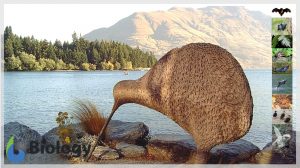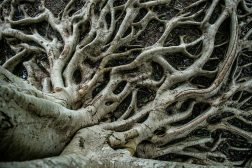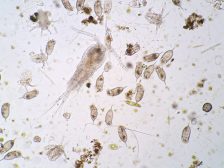soap
A substance which dissolves in water, thus forming a lather, and is used as a cleansing agent. Soap is produced by combining fats or oils with alkalies or alkaline earths, usually by boiling, and consists of salts of sodium, potassium, etc, with the fatty acids (oleic, stearic, palmitic, etc). See the note below, and cf. Saponification. By extension, any compound of similar composition or properties, whether used as a cleaning agent or not.
In general, soaps are of two classes, hard and soft. Calcium, magnesium, lead, etc, form soaps, but they are insoluble and useless. The purifying action of soap depends upon the fact that it is decomposed by a large quantity of water into free alkali and an insoluble acid salt. The first of these takes away the fatty dirt on washing, and the latter forms the soap lather which envelops the greasy matter and thus tends to remove it. (Roscoe & Schorlemmer) castile soap, a fine-grained hard soap, white or mottled, made of olive oil and soda; called also Marseilles, or venetian, soap. Hard soap, any one of a great variety of soaps, of different ingredients and colour, which are hard and compact. All solid soaps are of this class. Lead soap, an insoluble, white, pliable soap made by saponifying an oil (olive oil) with lead oxide; used externally in medicine. Called also lead plaster, diachylon, etc. Marine soap. See Marine.
(Science: alchemy) pills of soap, pills containing soap and opium. Potash soap, any soap made with potash, especially. The soft soaps, and a hard soap made from potash and castor oil. Pumice soap, any hard soap charged with a gritty powder, as silica, alumina, powdered pumice, etc, which assists mechanically in the removal of dirt. Resin soap, a yellow soap containing resin, used in bleaching. Silicated soap, a cheap soap containing water glass (sodium silicate).
(Science: botany) See quillaia bark. Soap bubble, a hollow iridescent globe, formed by blowing a film of soap suds from a pipe; figuratively, something attractive, but extremely unsubstantial. This soap bubble of the metaphysicians. (J. C. Shairp) Soap cerate, a cerate formed of soap, olive oil, white wax, and the subacetate of lead, sometimes used as an application to allay inflammation. Soap fat, the refuse fat of kitchens, slaughter houses, etc, used in making soap.
(Science: alchemy) Soap liniment, a liniment containing soap, camphor, and alcohol. Soap nut, the hard kernel or seed of the fruit of the soapberry tree, used for making beads, buttons, etc.
(Science: botany) Soap plant, same as soapberry tree. Soda soap, a soap containing a sodium salt. The soda soaps are all hard soaps. Soft soap, a s
789
oap of a gray or brownish yellow colour, and of a slimy, jellylike consistence, made from potash or the lye from wood ashes. It is strongly alkaline and often contains glycerin, and is used in scouring wood, in cleansing linen, in dyehouses, etc. Figuratively, flattery; wheedling; blarney. Toilet soap, hard soap for the toilet, usually coloured and perfumed.
Origin: OE. Sope, AS. Sape; akin to D. Zeep, G. Seife, OHG. Seifa, Icel. Sapa, Sw. Spa, Dan. Sbe, and perhaps to AS. Sipan to drip, MHG. Sifen, and L. Sebum tallow. Cf. Saponaceous.
Dictionary > Soap
You will also like...

Ecology & Biodiversity: New Zealand Flora & Fauna
New Zealand is known for its unique biodiversity, caused by its remarkable geography and geologic history. Breaking away..

Roots
This study guide tackles plant roots in greater detail. It delves into the development of plant roots, the root structur..

Freshwater Communities & Plankton
Planktons are microscopic organisms that live suspended in aquatic habitats. There are two groups: the phytoplanktons an..

The Gene Pool and Population Genetics
According to Charles Darwin's theory of natural selection, preferable genes are favored by nature in the gene pool, and ..

Sleep and Dreams – Neurology
While learning and intelligence are associated with the functions of a conscious mind, sleep and dreams are activities o..

Origins of Life on Earth
Earth was created around 4.5 billion years ago and life began not long after. Primitive life likely possessed the elemen..

